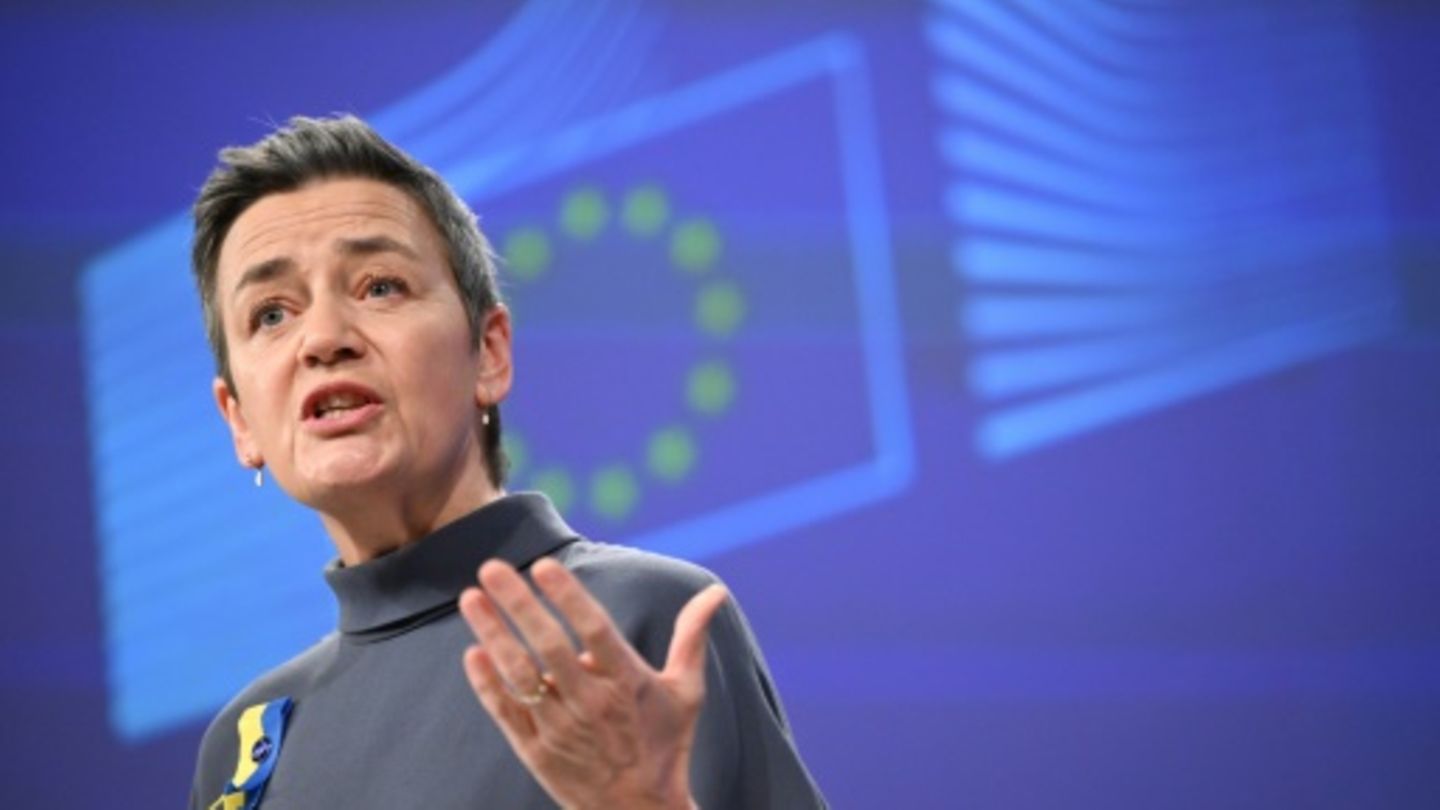A massive expansion of European arms production and more independence from the USA: This is the aim of a long-awaited defense strategy that the EU Commission presented on Tuesday in Brussels. “We must take more responsibility for our own security,” warned Vice Commission President Margrethe Vestager – regardless of whether Donald Trump becomes US President again. He had threatened to no longer defend the Europeans if he won the election in November.
Significantly more weapons “Made in Europe” and greater independence from international arms producers such as the USA and South Korea are the core of the new strategy that Vestager presented together with Internal Market Commissioner Thierry Breton and EU Foreign Affairs Representative Josep Borrell. Since Russia's war of aggression in Ukraine began a good two years ago, EU countries have bought 70 percent of the weapons supplied to Kiev in the USA, it was said in Brussels.
Nevertheless, the Europeans remained “completely loyal to NATO,” assured Vestager after criticism of the plans from the transatlantic alliance: “Improved ability to act will make us a stronger ally,” emphasized the Dane.
The legislative proposal for a European Defense Industry Program (EDIP) sets significantly higher targets for the member states than before: by 2030 they should spend “at least 50 percent of their procurement budget on defense within the EU” and by 2035 it should already be 60 percent be.
In addition, the EU states should jointly procure at least 40 percent of their defense equipment by 2030. The EU had already set a voluntary target of 35 percent for this in 2007, but the 27 countries are currently far short of this, regardless of Russia's war of aggression in Ukraine.
“We spend three times as much on defense as Russia,” criticized Internal Market Commissioner Breton, who is also responsible for defense. EU Commission President Ursula von der Leyen added in the online service
At the same time, Breton renewed his call for a European defense fund worth 100 billion euros. Federal Finance Minister Christian Lindner (FDP) had repeatedly rejected an instrument financed with community debt. Breton, on the other hand, referred to the support of French President Emmanuel Macron and the positive response from countries such as Belgium and Estonia.
The financing of the now proposed defense industry program is set to be much more modest, also due to German concerns. The EU Commission is proposing subsidies of initially 1.5 billion euros from the EU budget until 2027 as well as an abolition of VAT on the joint procurement of weapons. This is far from enough, Vestager admitted. However, the money could serve as an incentive for investment by member states.
Ukraine should be included in the armaments plans “as if it were a member state,” an EU official said. The cooperation in artillery ammunition, where a joint procurement initiative has already been in place for almost a year, will serve as a model for this.
However, the ammunition plans came to nothing. The EU can only deliver around a third of the promised one million bullets to Ukraine by the deadline at the end of March, as EU foreign policy chief Borrell confirmed. “We had hoped for greater participation from the member states,” admitted the Spaniard.

